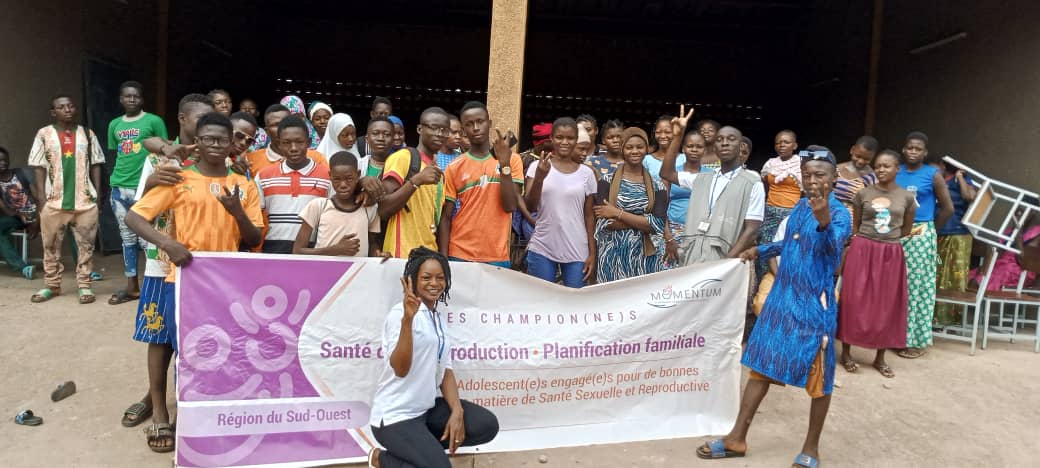Young People are Building Healthier Futures for Their Communities
Published on August 6, 2024
By MOMENTUM Integrated Health Resilience Country and Core Staff
Seventy percent of sub-Saharan Africa’s population is under age 25, and 42 percent is under age 15. All will be seeking meaningful roles in their respective societies. MOMENTUM Integrated Health Resilience works in sub-Saharan Africa with a strong focus on meaningfully engaging this massive youth energy to help improve their health and that of their communities as they move into adulthood. MOMENTUM’s work in three partner countries helps to illustrate specialized youth engagement approaches adapted for each context.
Tanzania
A special activity in Tanzania, ongoing since 2015 in the Greater Mahale Ecosystem, provides lessons in connecting population, health, and environment (PHE). Along with strengthening their own health and well-being, youth champions are trained to help fight the negative effects of climate change in their communities through environmental conservation and environmentally friendly activities, attend to personal hygiene, and learn about age-appropriate voluntary family planning (FP) and sexual and reproductive health. Young people are trained, for example, to understand the effects of overfishing and illegal tree cutting, how to improve the efficiency of home gardens, and how overharvesting of natural resources by growing populations can damage fragile ecosystems.
This education helps the community to build awareness and adopt positive PHE behaviors, leading to improved health and resilience for individuals, households, and communities. The PHE work has helped to shift gender and social norms that prohibit youth, and girls in particular, from accessing and using health services, especially FP services. Communities are experiencing positive changes as support to youth as leaders is increasing. In the current year, 88 youth leaders based in school clubs are actively engaged, and some 2,157 youth have been reached through project messaging.
“The growth of our youth has been positive as they have gone through the training,” says youth coordinator Mary Joseph Rupia. “They have learned how to preserve the environment as a way to improve their own health. Once they get this knowledge, they go into their communities and educate others.”
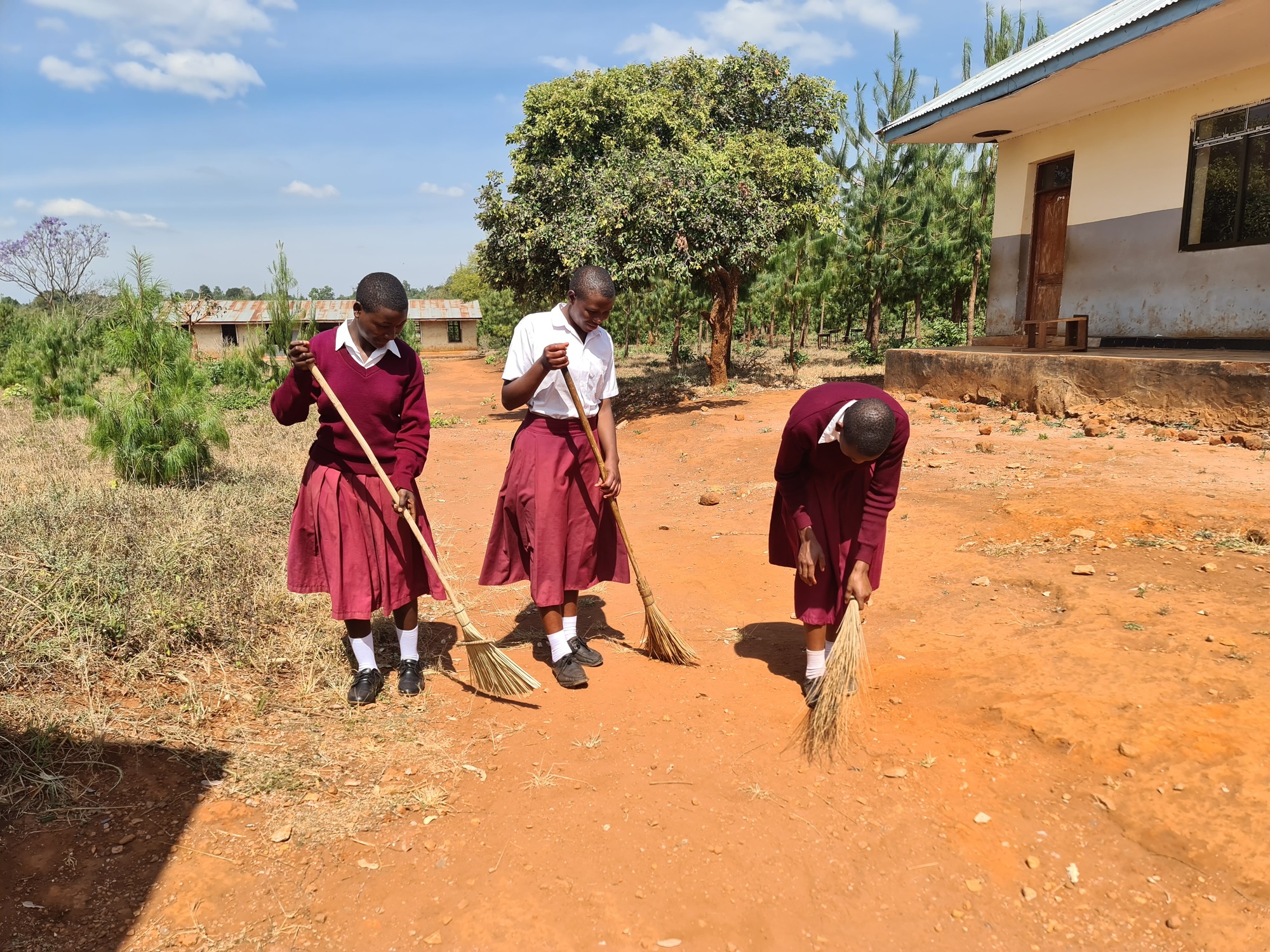
“Addressing the environment is a task for everyone to reduce the many problems that can occur, such as flooding and global warming. These can be controlled through preserving our environment well,” says student Mynes Emmanuel Simlunga, 17, of global environmental efforts. More locally, “Our work benefits the community by teaching people such things as reducing cholera through better preserving our surroundings. And for me, it has taught me about my menstrual cycle and how to (attend to) my body during the cycle.”
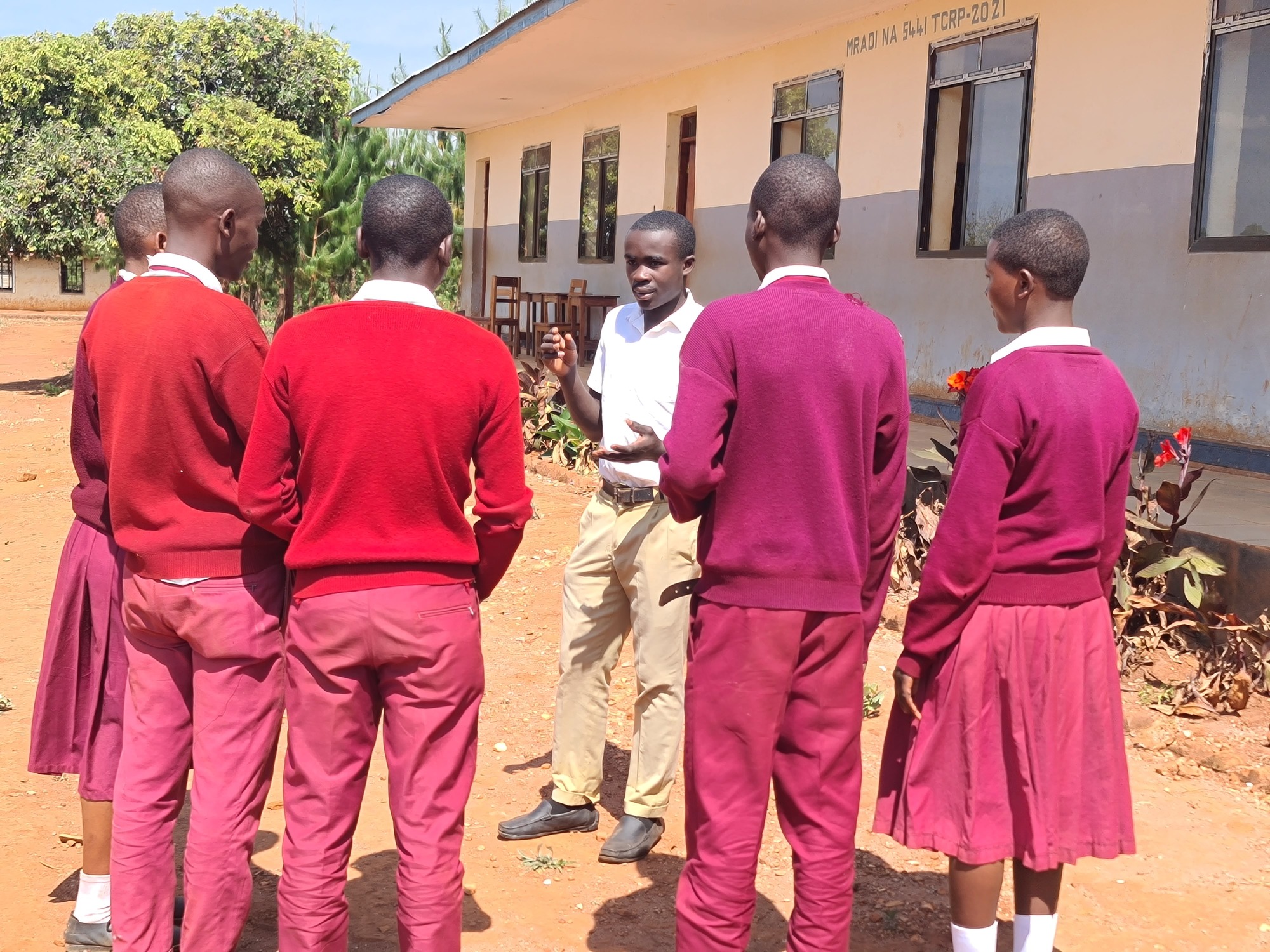
Burkina Faso
In Burkina Faso, maternal and infant mortality rates are among the highest in the world. Youth under 25 make up 64 percent of the population, and 20 percent of girls under 18 are or have been pregnant, In addition, only about a third of married women under 25 use a form of modern contraception. To help improve health outcomes for this burgeoning youth demographic, MOMENTUM works through local youth clubs to develop voluntary family planning and reproductive health (FP/RH) Young Champions across eight health districts in the country.
After recruiting youth from local associations, 63 male-female champion pairs were trained in FP/RH, gender-based violence, group leadership techniques, and digital communications so they can more accurately discuss these issues with their peers. Outreach discussions and educational talks followed at spaces frequented by young people such as tea houses and theaters, in addition to various social media campaigns. Conducting parent-child dialogues to improve intergenerational understanding was also discussed.
Youth leader Yves Constant Somda reflected on the project’s three year arc and the 7,463 young people reached to date: “I saw young people who initially did not have self-confidence and who could not express themselves in public. Thanks to this program, they have become leaders capable of making contributions to building the nation.”
Yves noted that, through observing their volunteer efforts, he is confident that the Young Champions have helped their peers avoid issues such as early pregnancies.
“They love this work and they took this fight head on,” noted Yves. “The young people were able to gain the trust of their community to such an extent that several participants revealed secrets to them (such as cases of sexually transmitted infections), which they were ashamed of and hid from their parents for fear of being punished or banned from the community. The Young Champions provide them with advice and refer them to health facilities for treatment.”
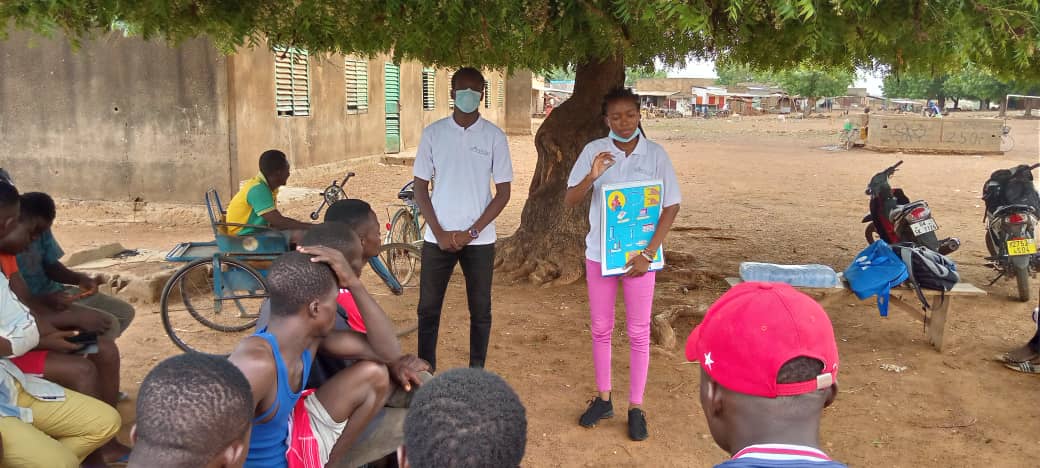
“My work with MOMENTUM helps educate young people and provide them with resources to make informed decisions about their health. This reduces the rate of sexually transmitted diseases and unwanted pregnancies, and improves overall quality of life,” says Young Champion Assy Celestial Pulcheria Guelene, 21. “I want people to know that every little action counts. As for me, I discovered that I have a real passion for community service and that I can motivate and direct groups toward common goals. It’s given me a lot of trust in myself and in my abilities.”
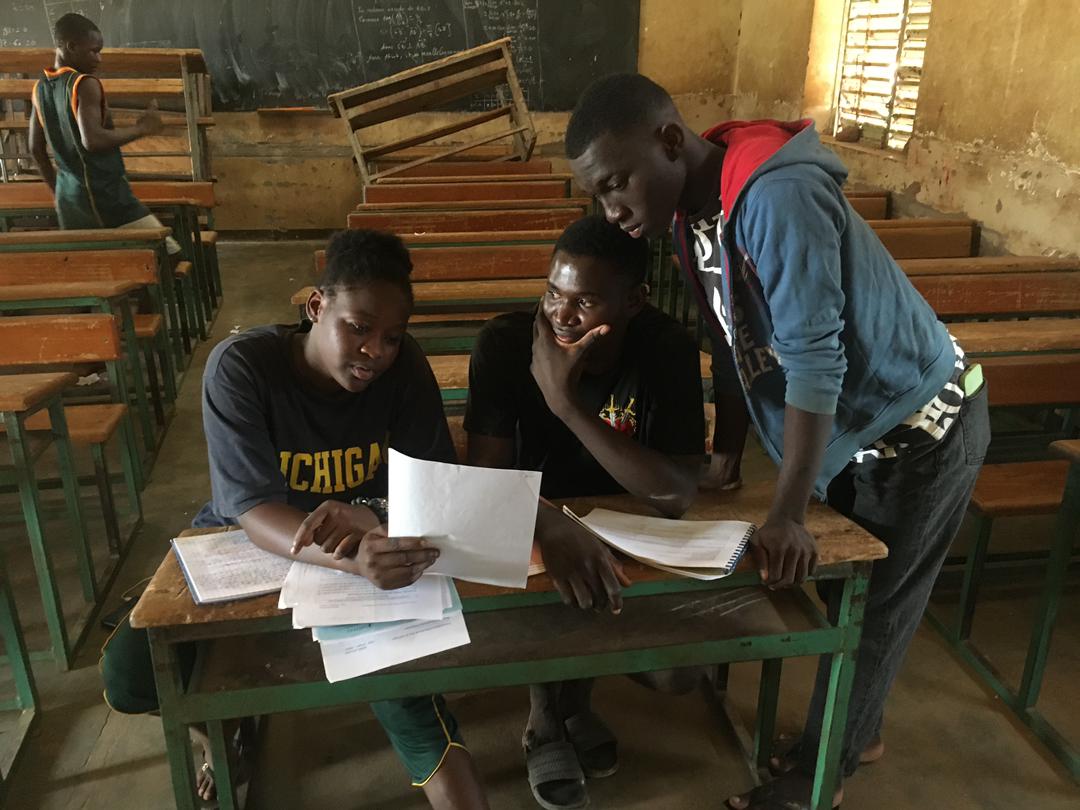
“I learned that some young people had gaps when it came to sexual health. While others had perfect knowledge of sexual and reproductive health, they were putting themselves at risk by engaging in practices that are not likely to ensure health,” says Young Champion Abdoul Rachid Kouanda, 20. Consequently, he says his work is meaningful: “This work can contribute to parent-child dialogue sessions bringing together the whole family so that youth can make themselves understood. I dare to hope for a bright future without conflict.”
Mali
One strategy used in Mali is called Empathways, which is a card game activity created by Breakthrough Action to help young people and FP service providers better understand each other through interaction and dialogue. Based on Breakthrough Action’s results on implementing this game in similar contexts in West Africa, this engaging format seems appropriate.
In a pilot experiment to test Empathways in nine urban health centers in Gao and Timbuktu, 44 service providers and young people engaged in one-on-one discussions prompted by their card decks. Such dialogues are especially important in a country like Mali, where over half of the population is under the age of 15, and adolescents account for a third of total pregnancies. A key barrier to young women’s use of contraception is a lack of health services tailored to their needs delivered by knowledgeable and respectful providers. The Empathways model works to build empathy and understanding between providers and young people, which is vital in countries with growing youth populations.
The activity mainly targets changes in provider behavior toward adolescents and young people seeking FP services, including being more accepting, having less prejudice, offering an openness to dialogue, and providing more availability for services. Young people interviewed during the pilot follow-up affirmed their satisfaction with the availability and attentiveness of the service providers toward them.
“This was a great experience,” said provider Mahamane Mahalmadane Touré. “Meeting with young people allowed me to understand that young people have specific needs, and it is better to understand them than to criticize them. It develops empathy, and working directly with young people allows us to break taboos and have a conversation on all subjects like health, development, and education. It also gives more responsibility to young people to control their own health.”
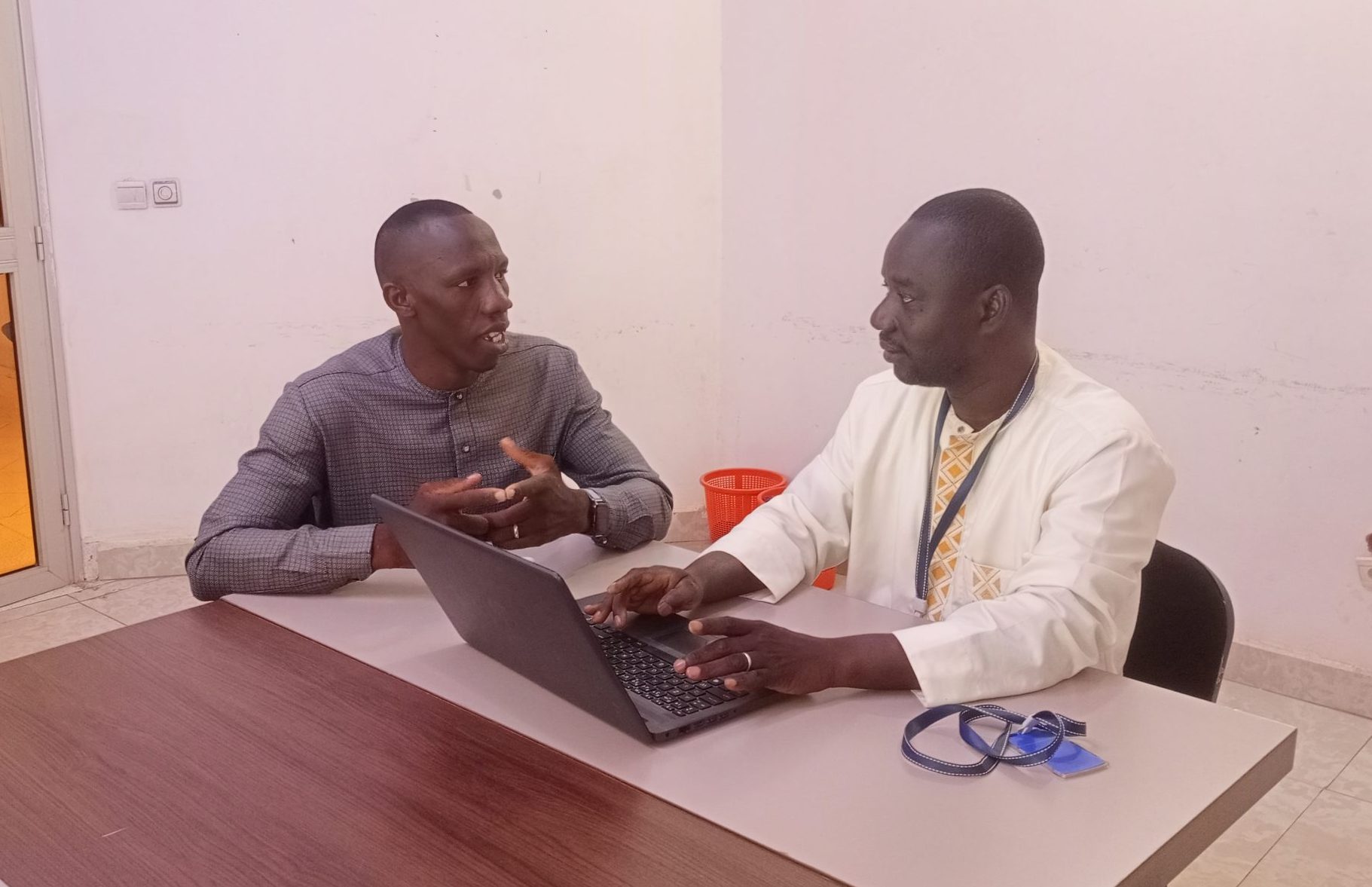
“The Empathways activity puts young people at the center of debates regarding family planning,” says local youth leader Ousmane Yattara. “It’s an activity that raises awareness so it’s important. It provides sensitization and an awakening of consciousness to youth needs. Good collaboration must exist between young people and health workers.”
The youth-focused activities described above are intended to strengthen health resilience and the roles of youths in their communities in positively engaging with gender, family planning, reproductive health, and other issues long after MOMENTUM’s involvement concludes. Although challenges and uncertainties await in these fragile contexts, MOMENTUM’s work provides a solid foundation for hope in the future.
